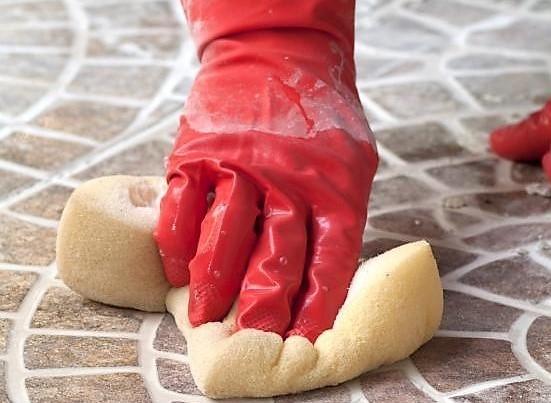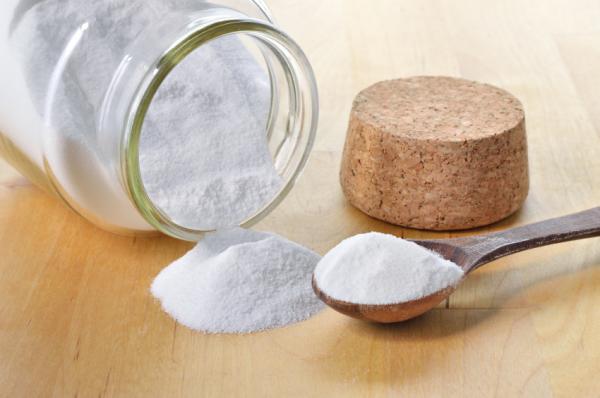How to Remove Lemon from Marble


Ever noticed a cloudy mark on your marble countertop? You're not alone. Lemon juice, despite its cleaning prowess, can etch and stain this delicate stone. Marble's softness, porosity, and calcium carbonate composition make it prone to scratches, etching from acidic liquids, and a loss of shine. The good news is, restoring its shine is possible!
The following oneHOWTO article explains how to clean lemon stains from marble, offering simple methods to restore its pristine shine.
Why does lemon stain?
Lemon can stain due to its natural acidity and the presence of compounds like citric acid and essential oils.
Not only that, but when lemon juice comes into contact with surfaces like clothing, countertops, or skin, it can cause discoloration due to its ability to break down pigments and react with substances such as minerals in water or materials in fabrics.
The yellowish color of lemon juice itself can also leave behind stains, especially on porous or absorbent surfaces. Additionally, prolonged exposure to sunlight can sometimes intensify these stains.
Lemon stains on marble can be particularly problematic due to marble's porous nature and sensitivity to acidic substances like lemon juice. Here's why lemon stains marble:
Why does lemon stain marble?
Lemon juice is acidic, primarily due to citric acid. When lemon juice comes into contact with marble, which is primarily composed of calcium carbonate, a chemical reaction occurs. The acid can etch or corrode the surface of the marble, leaving behind dull spots or marks.
To make matters worse, marble is porous, meaning it has tiny holes and spaces that can absorb liquids. Lemon juice can penetrate into these pores, causing deeper stains that are more challenging to remove.
Finally, lemon juice can also react with minerals present in the marble or in water used to clean the surface, exacerbating the staining or etching effect.
Types of lemon stains on marble
To effectively remove lemon stains from marble, it's important to know the different types of stains they can cause on various marble surfaces like tiles, countertops, or floors.
- Lemon etch marks on marble: lemon juice on marble won't leave a traditional "stain" like you might see on fabric. Instead, it causes etching. When lemon juice touches marble, it can create dull spots or slight corrosion on the surface, especially on polished marble. These marks are visible under specific lighting and happen quickly because marble reacts to acids like lemon juice.
- Lemon stains on marble: this type of stain occurs when lemon juice seeps into the marble, causing it to darken. However, deep staining from lemon juice isn't very common compared to surface etching. It is only caused by prolonged contact or highly concentrated juice. However, the primary sign of a lemon "stain" on marble is etching, not a traditional colored stain.
- Mixed stains: sometimes, a lemon stain on marble can show both surface etching and deeper discoloration.
Knowing which type of lemon stain you're dealing with helps you choose the right method to remove it effectively from your marble surfaces.

How to remove lemon from marble
These are the steps to remove lemon stains from marble:
- If you spill lemon juice on a marble countertop or floor, quickly wipe it with water and then gently rub it with baking soda.
- For lemon juice etching on marble, use a specific etch remover and avoid general marble polish. Etch removers are affordable and easy to use at home.
- If your marble has a honed or matte finish, you cannot use etch remover. In this case, you may need to grind down the etch mark with a special disk, which can be done yourself.
- If the marble is scratched along with the stain, buff it out with sandpaper. For granite marble, which is less prone to etching, any color differences are likely soap residue and can be cleaned with acetone.
- If you are dealing with a lemon juice stain that alters the color and texture of the marble, it is best to contact a professional. They have the expertise and tools to effectively restore the marble surface.
- Routinely clean and maintain marble surfaces to prevent buildup and potential staining. Wipe down countertops and floors regularly with a damp cloth to remove any surface debris.
- Consider applying a sealant or protective coating on marble surfaces. This can help prevent liquids like lemon juice from seeping into the marble and causing stains.
- Avoid using harsh cleaning products like vinegar on marble, as they can damage it. Use pH-neutral cleaners specifically formulated for marble surfaces. Learn why you shouldn't use vinegar on marble in this other article.
Instead, consider preventive measures to avoid future stains, sparing you the hassle of removing lemon stains from marble altogether.

How to prevent yelleow stains on marble
To keep your marble surfaces looking their best, it's important to regularly check for any signs of stains or damage. Look for discoloration, dull spots, cracks, or chips.
Catching these problems early means you can fix them before they get worse. Try to inspect your marble surfaces every week or two, depending on how often they're used and what they're exposed to. Here are some additional tips:
- Use a soft, dry cloth to dust your marble surfaces often. Follow up with a damp cloth to pick up any remaining dirt. Make sure the cloth is only slightly damp to avoid water stains.
- Apply a marble sealer every 6-12 months to protect the surface from stains and etching. Follow the instructions on the product for the best results.
- Occasionally polish marble surfaces to keep them shiny. You can use a marble polish or a paste made of baking soda and water. Apply with a soft cloth and buff gently.
- Use coasters for drinks and mats for hot dishes to protect the marble from moisture and heat damage.
Finally, make sure everyone in your household knows how to care for marble surfaces properly.
Do not miss this other article where we explore how to best clean acid stained floors.
If you want to read similar articles to How to Remove Lemon from Marble, we recommend you visit our Home cleaning category.







